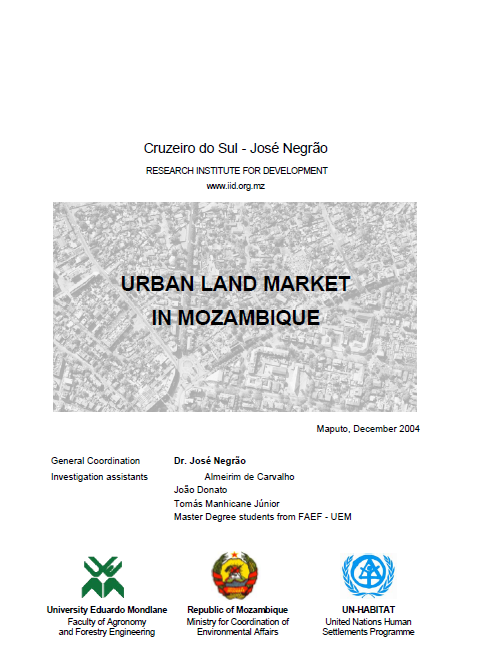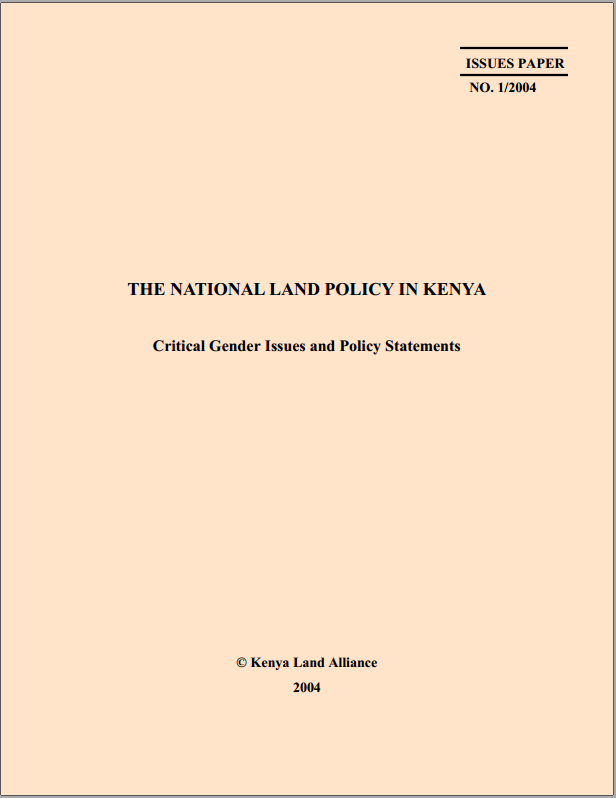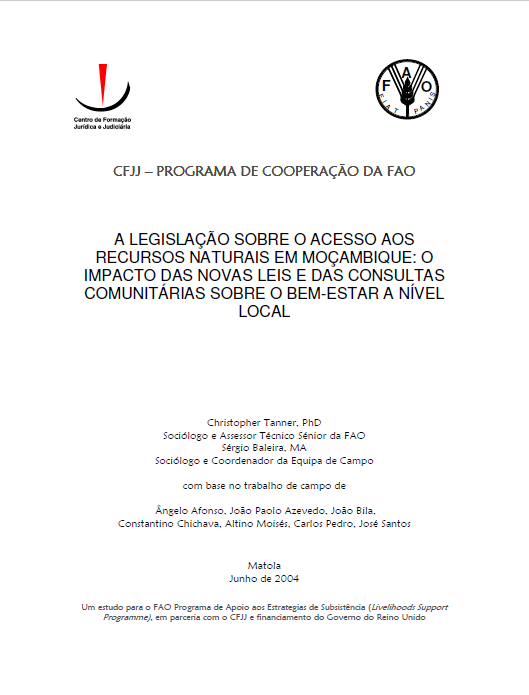Urban Land Market In Mozambique
This study was requested by the Ministry for Coordination of Environmental Affairs (MICOA), through the National Directorate of Territorial Planning (DINAPOT) in conjunction with the United Nations Human Settlements Programme (UN-HABITAT); for this purpose, the team of the Cruzeiro do Sul – Research Institute for Development counted with the participation of a group of studen
Women’s Land Access in Post-Conflict Rwanda: Bridging the Gap between Customary Land Law and Pending Land Legislation
Contains sections on the effects on women of Rwanda’s civil war, the legal system, the gap between customary law and land legislation, research findings about Rwandan women’s rights, a number of dispute case studies, including methods of dispute settlement. Argues that a gap exists between customary and modern legal systems, creating both land access opportunities and constraints for women.
Zambia Land Alliance Submission to Constitutional Review Commission
A series of submissions by the Zambia Land Alliance on these topics: land as a right; women’s rights to land; vestment and administration of land; conversion of customary land to leasehold tenure; land and the environment; land information; mode of adoption of the Constitution.
Land Reform and Human Rights in Contemporary Zimbabwe: Balancing Individual and Social Justice through an Integrated Human Rights Framework
Land distribution and access to land are key issues in Zimbabwe. In recent years, nearly all of the country's commercial farm land has been re-designated, leaving most farm workers dislocated from their farm villages. The government of Zimbabwe argues that the land reform programme is needed to achieve historical and social justice.
Gender and the Land Reform Process in Uganda: Assessing Gains and Losses for Women in Uganda
Land in Uganda is the core factor of production and one of the three basic resources, next to people and time.
The National Land Policy in Kenya Critical Gender Issues and Policy Statements
The purpose of this Issues Paper is to move the debate and stimulate discussion of issues relevant to women’s land rights and social security beyond the unfulfilled demands for gender responsive land policies and land legal framework.
Widows, AIDS, Health and Human Rights in Africa
This paper argues that widows and female children in Tanzania have traditionally been denied the right to inherit property from their husbands, even when the property was acquired during the marriage. This is further complicated by a three-part legal system consisting of customary law (law grounded in customs or traditions), Islamic law, and statutory law (law set down by a legislature).
A legislação sobre o acesso aos recursos naturais em Moçambique: o impacto das novas leis e das consultas comunitárias sobre o bem-estar a nível local
Este relatório considera um dos aspectos práticos mais importantes da participação local na Lei de Terras e outra legislação sobre recursos naturais: a consulta comunitária, através da qual os estranhos – o Estado, novos investidores, empresas madeireiras, grupos de hotéis – obtêm acesso à terra e recursos locais com a aprovação da população local.
To Have and to Hold: Women’s Property and Inheritance Rights in the Context of HIV/AIDS in Sub-Saharan Africa
Contains introduction; determinants of property rights and consequences of loss (including country examples from Kenya, Lesotho, Malawi, Namibia, Zambia); policy context: influencing strategies to promote property and housing rights; finding what works: mapping good practice in local and national activities (including legislative frameworks, judicial capacity and litigation, public awareness);
Rural Women's Access to Land and Property in Selected Countries: Progress Towards Achieving the Aims of Articles 14, 15 and 16 of the Convention on the Elimination of All Forms of Discrimination against Women (CEDAW)
Women's access to land is a fundamental factor in food security. Yet women all over the world suffer under discriminatory property and inheritance laws and customary practices which restrict their rights over the land on which they live and work. Articles 15 and 16 of CEDAW state the rights of women to property and inheritance.
Desenvolvimento Comandado pelas Comunidades Um inventario e analise do ponto da situação em Moçambique
A Constituição de Moçambique (1990) refere especialmente a participação das comunidades nos diferentes níveis de administração territorial (Constituição, 1990 artigo 116: “Nos diversos escalões territoriais, os órgãos locais do Estado asseguram a participação e decisão dos cidadãos em material de interesse da respectiva comunidade.” A visão sobre a participação comunitária el







